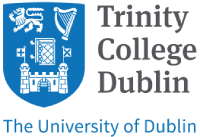About the Project
Background
The export of Dissolved Organic Carbon (DOC) and evasion of carbon dioxide (CO2) from inland waters is increasingly being recognized as a key part of the terrestrial carbon (C) cycle. However, a major weakness in the carbon balance estimation of terrestrial ecosystems, such as peatlands, is the poor quantification of DOC and CO2 evasion fluxes associated with drainage waters. This has implications for conservation, land-use management and climate change mitigation. Whilst intact peatland systems typically sequester carbon, drainage modifies peatlands such that they act as a net C source due, primarily, to the degradation of organic peat soil. This results in peat settlement, the loss of peat-forming habitat and an increase in export of C as DOC in drainage waters. In addition to this, drainage waters are super-saturated in CO2 and methane (CH4) which rapidly evades back to the atmosphere resulting in an additional C loss. Thus, C losses in the drainage systems of peatland catchment areas are possibly an under-reported and significant source of C in countries with significant peat land cover, such as Ireland.
This PhD project aims therefore to quantify the magnitude of C losses in aquatic pathways from the range of peatland systems found across Ireland. To achieve this, representative catchments will be instrumented for hydrometric monitoring and analysis, and aquatic C fluxes will be measured using both field and laboratory based instrumentation. Upscaling of measured aquatic C fluxes will be achieved by deploying hydrological modelling approaches for ungauged catchments and will be informed by a concurrent doctoral project that will map peatland drain densities and characteristics using remote sensing technologies, as well as other research into land-atmosphere GHG fluxes.
Project team:
This doctoral research project will form part of SmartBog, a new Environmental Protection Agency (EPA) of Ireland funded multi-disciplinary initiative that is assessing the impact of anthropogenic management of peatlands, through drainage and land use conversion, on carbon and greenhouse gas emissions. This project will be a collaborative endeavour, combining academic and governmental departments, and will be jointly supervised by:
• Dr Matthew Saunders: Assistant Professor in Plant Ecophysiology, Trinity College Dublin
• Professor Laurence Gill: Professor in Environmental Engineering, Trinity College Dublin.
• Dr Shane Regan: Senior Ecohydrologist, National Parks and Wildlife Service, Science and Biodiversity Unit, Dublin
The prospective student will be based in the Environmental Engineering group in Trinity College Dublin.
Funding Notes
This project is funded by the Environmental Protection Agency. The PhD candidate will be based in TCD and will be supervised by Dr Matthew Saunders (TCD), Prof Laurence Gill (TCD) and Dr Shane Regan (NPWS). The Fellowship provides an annual stipend of €24,000. University fees are paid by the student from this stipend, which is tenable for 3 years.

 Continue with Facebook
Continue with Facebook

